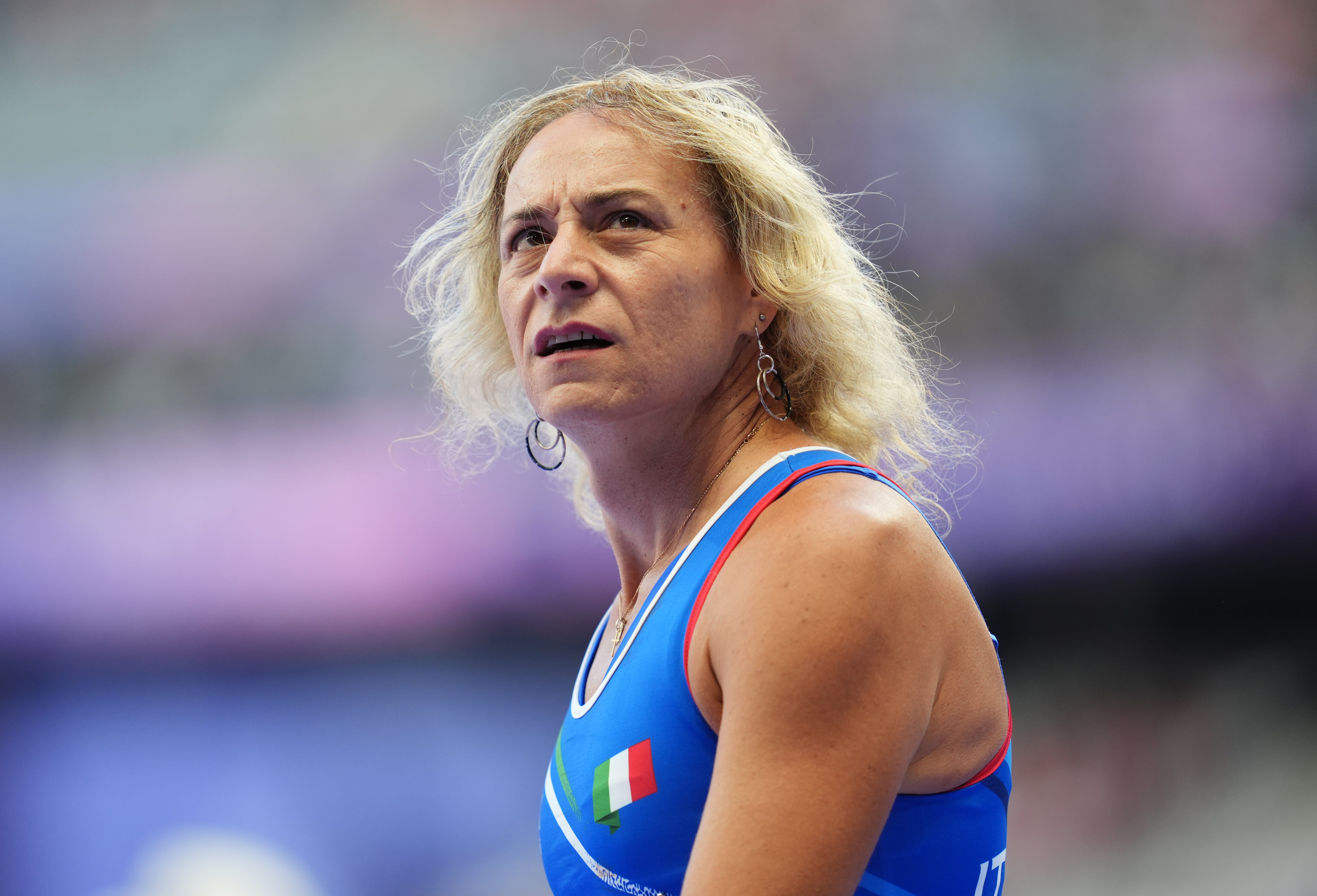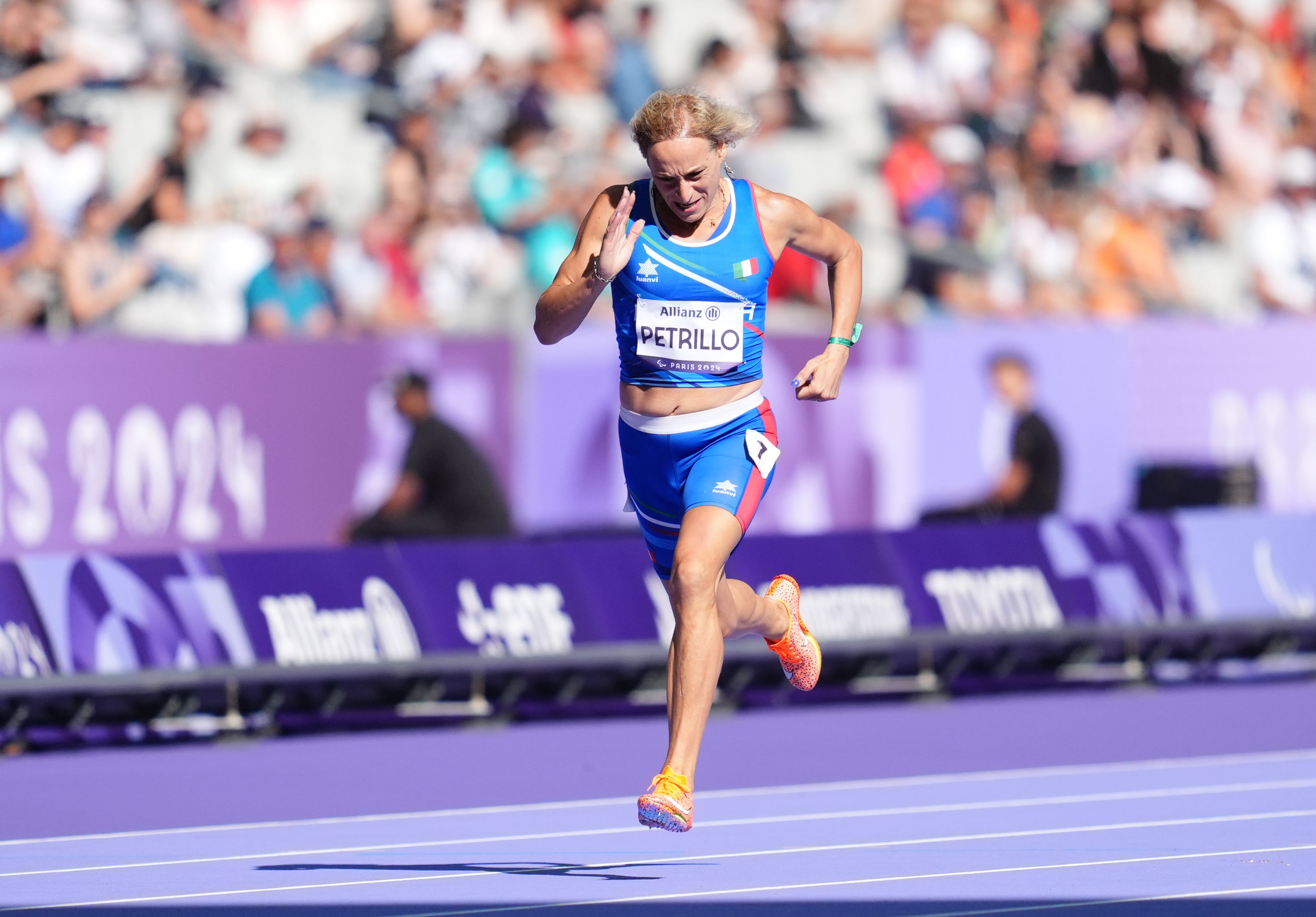Valentina Petrillo became the first transgender runner to compete at the Paralympics as she took part in the women’s athletics programme at Paris 2024.
Petrillo, who transitioned in 2019, is a visually impaired runner and competes in the T12 200m and 400m sprints. She finished second in her 400m heat at the Stade de France on Monday morning and will run in the semi-finals at around 8pm BST, with the medal race scheduled for Tuesday.
The 50-year-old was initially reported to be the first openly transgender Paralympian. However, Dutch athlete Ingrid van Kranen finished ninth in the women’s discus final at the Rio 2016 Games.
Petrillo previously won 11 national titles in the men’s category as a married father of two, and her participation at these Games has caused controversy.
“From today I don’t want to hear anything more about discrimination, prejudices against transgender people,” she said after her heat. “There are lots of people dying only for being trans, people are killed because they are trans, people commit suicide because they are trans and lose their jobs, or (they are) are not included in sport. But I made it. If I can make it, everyone can make it.”

Petrillo said before the Games that she had learnt to deal with “jealousy” and has “nothing to fear” after concerns about her inclusion were raised by fellow athletes, including rival T12 runner Katrin Mueller-Rottgardt.
“Honestly, I can’t wait to be in Paris and race on that beautiful purple track and in front of all that enthusiastic crowd,” Petrillo told Spanish sports website Relevo. “I think there will be a lot more love for me than I can imagine.
“It’s only fair that each of us can express ourselves in our own gender. Sport should teach us the value of inclusion and this is fundamental for people’s happiness.”
German athlete Mueller-Rottgardt suggested 200m opponent Petrillo, who won two bronze medals at last year’s World Para Athletics Championships, has a physical advantage due to having “lived and trained as a man”.
“Basically, everyone should live in everyday life the way they feel comfortable, but I find it difficult in competitive sports,” said Mueller-Rottgardt. “Petrillo has lived and trained as a man for a long time, so there is a possibility that the physical requirements are different to those of someone who was born as a woman. This could give an advantage.”
Round one of the women’s T12 400m is scheduled for Monday 2 September at Stade de France, with the final the following day. The 200m races take place on 6-7 September at the same venue.
“I have learned to let go of what I cannot control,” continued Petrillo. “I am now psychologically stronger than I was some time ago and this is also due to the support of my psychologist. People always criticise, for whatever reason and that is why in my case, they are even more likely to do so.

“I gradually understood that you have to live with people’s envy and jealousy, unfortunately. But, for my part, I am aware that what I do is real and therefore I have nothing to fear.
“I am absolutely aware of the social and cultural value of my presence in Paris 2024. I will do everything possible to rise to the occasion and achieve a sporting result of a certain competitive value.”
International Paralympic Committee (IPC) president Andrew Parsons has said Petrillo, who was diagnosed with Stargardt disease – a genetic eye condition – aged 14, is welcome in Paris under current World Para Athletics policies.
However, Parsons would like to see the sporting world “unite” on its transgender policies.
Currently, there is no unified position towards transgender inclusion, with the IPC allowing international sports governing bodies to set their own policies.
Under World Para Athletics rules, an athlete legally recognised as a woman is eligible to compete in the category for which their impairment qualifies them.
Additional reporting by agencies






